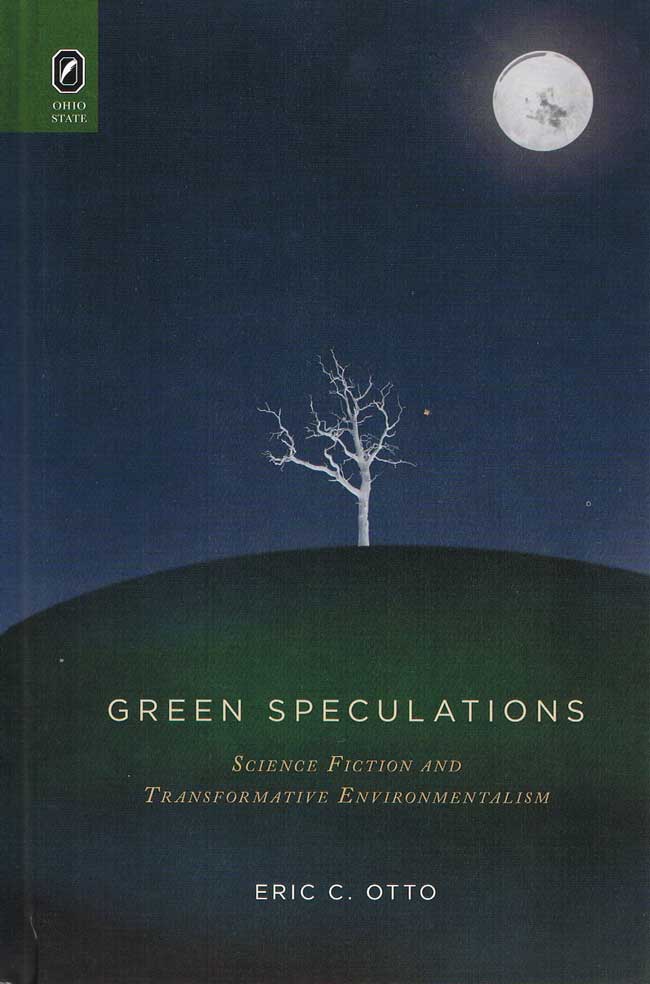Green SpeculationsScience Fiction and Transformative EnvironmentalismEric C. Otto |
 9/10/2012 Literary criticism/Science Fiction & Fantasy 152 pp. 6x9  $29.95 cloth 978-0-8142-1203-5 Add cloth to shopping cart $14.95 CD 978-0-8142-9305-8 Add CD to shopping cart Shopping Cart Instructions Review/Change Shopping Cart & Check-out | |||
|
Explore More |
“The notable insight of Green Speculations is how science fiction, with its imaginative worlds and possible futures, makes visible the costs and damages of our current economic systems that are simply ignored, overlooked, or erased by particular ideologies. Eric C. Otto’s study greatly expands the purview of ecocriticism and makes an impressive case for the relevance of science fiction in environmental discussions.” —Heather Sullivan, Trinity University “In his concise book Eric C. Otto provides a solid, well-structured introduction to texts that have already gained canonical status within environmental science fiction.” —Hannes Bergthaller, a founding member of the European Association for the Study of Literature, Culture, and the Environment Science fiction goes green? Eric C. Otto explores literary science fiction’s engagement with a central concern of our times: ecological degradation. Situated at the intersection of science fiction studies and environmental philosophy, Green Speculations: Science Fiction and Transformative Environmentalism highlights key works of environmental science fiction that critique various human values for their roles in instigating such degradation. The books receiving ecocritical treatment in Green Speculations include George R. Stewart’s Earth Abides (1949), Frank Herbert’s Dune (1965), Ursula K. Le Guin’s The Word for World Is Forest (1972), Joan Slonczewski’s A Door into Ocean (1986), Kim Stanley Robinson’s Mars trilogy (1993, 1994, 1996), and Paolo Bacigalupi’s The Windup Girl (2009). Otto reads these and other important science fiction novels as educative in their representations of environmental issues and the environmental philosophies that have emerged in response to them. Green Speculations demonstrates how environmental science fiction can be read not only as reflecting the ideas of environmental philosophies such as deep ecology, ecofeminism, and ecosocialism, but also as instrumental in thinking through the tenets of these philosophies. As such, the book places science fiction at the center of environmentalism and considers the genre to be an essential tool for prompting needed social and cultural transformation.
| |||


